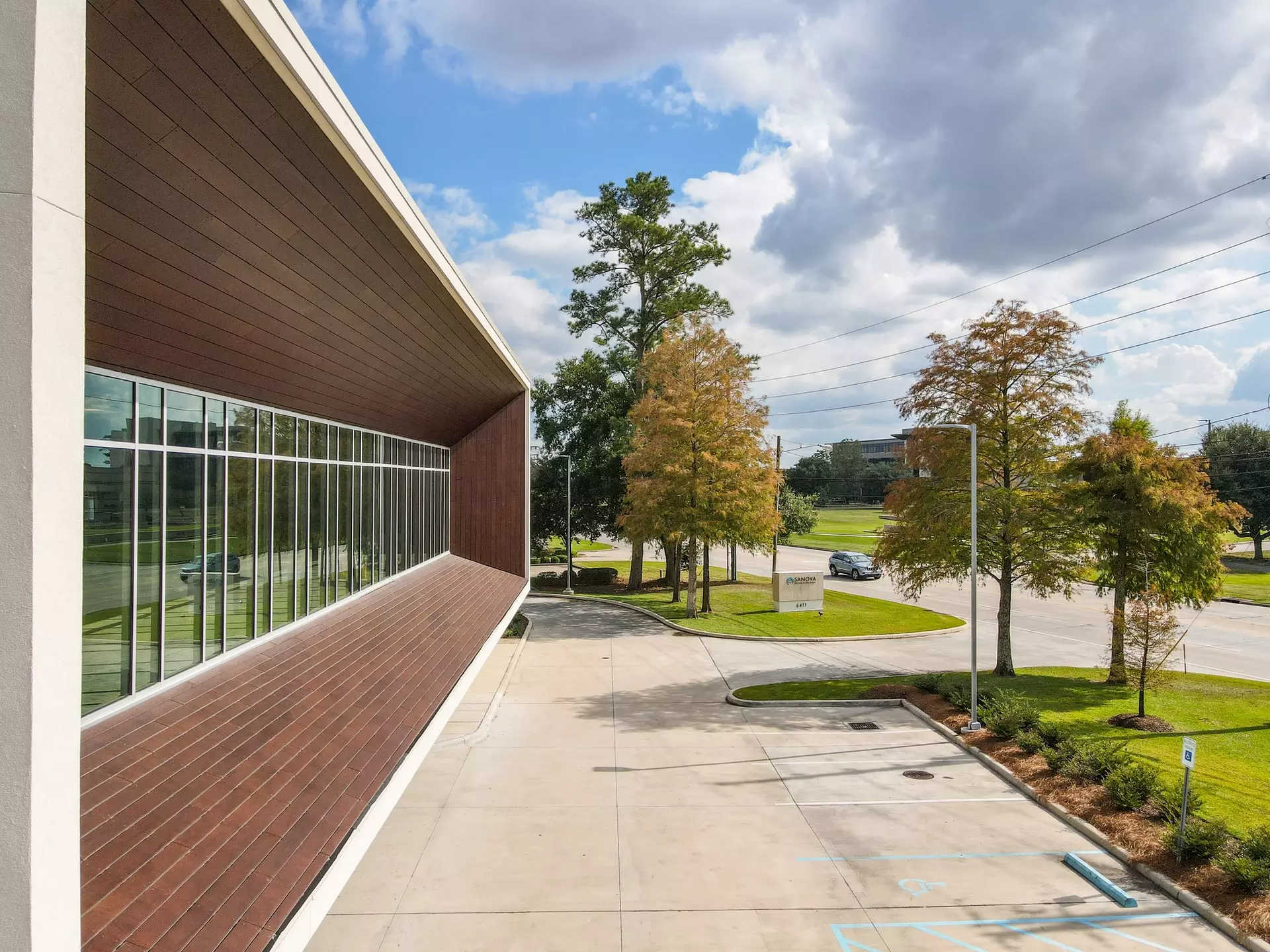What are the pros and cons of commercial properties? Kent Property Witness offer RICS expert witness surveyor services for Tonbridge and Kent. We explore the reasons why you may want to invest in commercial property today.
Expanding and investing in property doesn't have to end with residential, and many investors are beginning to see the perks of investing in commercial properties. In this short article, we will explain to you what a commercial property is and how you can best utilise them as your next property investment.
What Is a "Commercial Property?"
If you're a property investor or real estate enthusiast, then you'll know the differences between commercial and residential properties and the unique navigation needed for acquiring both.
Commercial properties will, typically, include office, retail, and industrial buildings and can consist of mixed buildings where only some parts are commercial. Commercial land can also be of interest, but generally, property or land that can be used to turn a profit is considered commercial rather than residential.
An investor may look into previous sales rates and occupancy rates as an indication of the success of an individual commercial property and how it can be best utilised in the future.
When compared to residential real estate, there are some clear pros as to why an investor may choose to go commercial, but there are some cons as well.

The pros of investing in commercial property
The biggest pro of investing in commercial property is the earning potential. You'll hear from many websites and investors that the earning potential is much higher for a commercial property, and it can be compared to residential properties. You can be looking at an annual return against the purchase price of between 6-12%, whereas residential can offer you 1-4%.

On top of this, any business landlord that utilises your building will want to keep it in good condition, as it houses their business.
This means you can rest assured that the building will be maintained and retain value. Property investors have been noted to say that the relationship between themselves and the commercial tenants is so much easier to navigate than that of the residential counterpart, as you're both interested in keeping the building intact for business reasons.
The Stamp Duty Land Tax is another big pro for commercial buildings, as the rates are notoriously much lower, and the loss of the 3% surcharge makes things easier.
This extends to mixed buildings, where apartments or flats could be present alongside an office unit - and can make purchasing the land cheaper.
Having some form of Rental Income Stream when purchasing a commercial property is another pro. When you, as an investor, buy a commercial property with a business already within, then the tenant will already be bringing income, and your rental income won't be delayed.
Suppose you have a domestic or residential property. In that case, you may spend more time and money refurbishing the establishment and then finding a suitable, trustworthy tenant who can provide that rental income.
Lease length tends to be longer in commercial properties than domestic or residential, giving you more flexibility as an investor. An assured shorthold tenancy (ASTs) that will typically operate within residential properties will generally be a six-month or, more commonly, 12-month length contract.
With commercial leases, you're able to decide on what works for you and the tenant, as you can choose anywhere from 2-10 year term contracts. This will give you more security as a landlord that this rental income stream will continue to flow, and you can build up a stronger relationship with the tenant.
Building on this, the tenant security from a landlord's point-of-view is stronger in commercial properties. Compared to residential, more meticulous checks are carried out during the application process to ensure they are the right match for your building.
Credit checks and rent deposits are guaranteed, meaning you're not at risk of your building losing a good tenant. The security of having a good tenant can lead to more value being placed in your building. As they continue to run a successful and friendly business, this can bring more cash flow into the establishment.
Assignability of the term contract is another pro for commercial properties. With residential ASTs, during the changing of a tenant, the landlord will more than likely be met with a period of no rental income.
This also can occur when the tenant left at short notice or was evicted momentarily when an event occurred. With a commercial lease, the landlord's consent is needed, giving them the entitlement to look at the new tenant's financial history, strengths, and weaknesses.
Furthermore, the leaving tenant can sign an authorised guarantee agreement that will guarantee the new tenant's obligation to pay the building rent. This can only enhance the confidence and leave the landlord assured the new tenant will be financially secure.
Triple net leases can also provide a landlord with reassurance and a guarantee that the only payment you're making and contributing to is your mortgage repayment.
As the property owner, you're not responsible for making payments for any expenses on the property, and these types of leases or contracts are optimal for bigger businesses. These lease terms can't be arranged with a residential property.

Finally, one of the best pros is the maintenance and repair responsibilities. With residential buildings, the landlord will typically have to make any repairs the tenant reports or supply someone who can make those changes. However, the repairing obligations in commercial property will typically be conducted and paid for by the tenant.
The contract or lease will include a clause that mentions that the repairs and maintenance are to be done by tenants, which leaves the landlord financially free from doing them. Some landlords prefer to work this way, as it keeps them separate from any damages or repairs, and those expenses are left to the tenant to either fix themselves or pay for.
This is up to the individual landlord, though, and you can take a more residential approach and repair any damages yourself, with the tenant reimbursing those damages at the end of the lease. However, with some commercial leases being 2,3,4,5 years+, then you wouldn't see that money for a longer time, so it makes more sense to utilise the other option.
The cons of investing in commercial property
We want to begin the cons with two that could contradict some pros, as they're to do with tenants and contracts.
Despite being easier for some to navigate, nothing comes with complete ease. There could be a longer period between tenants, as you're filling a building with a business owner tenant, not residential, which will go much quicker. The contract may last longer and give a landlord security for several years, but once that contract ends, a commercial landlord will find themselves with an empty building and no income quite often.

The contract needed for commercial property can also take longer to negotiate and complete when compared to residential ASTs. This is just because of the additional checks that need to be completed, but if you're a landlord that has an empty property and you're desperate to get a new tenant in, this can be infuriating.
One of the biggest cons that we don't want to ignore is the Time Management needed for being a landlord of a commercial property. There's much more daily interaction needed with your tenant(s) and your building, especially in comparison to residential.
If you own both types of property, you will already know the differences and perhaps note some of the struggles. You'll be responsible and dealing with multiple leases, unlike the one for residential, and the public safety concerns of the building will be a concern of yours, not just the business owner. It'll reflect poorly on both of you if something were to go wrong.
There are more risks generally with a commercial property, and this is mainly due to the increased foot traffic and regular customers on the premises. The more people you have in your property, the more likely an accident is to occur.
This is why it's important to spend extra money protecting the property and the people who visit it, as people can slip, trip, or fall, and then you're dealing with a legal issue. It's important to organise this early on and maintain your property management to prevent any health hazards.
Overall, there are more expenses when dealing with commercial properties. This goes from the moment you decide to invest in one, as the initial cost will probably be higher than the residential counterpart. As this building is a place of business, there's going to be more maintenance needed, and repairs are more likely to occur as the equipment is being used daily. You may not see much profit during the beginning term, but this will change over time.
Choosing the Location of a commercial property investment
Seeing as a commercial and residential property in the same area can have a large price difference, it's essential to know the area and make a smart investment.
You must consider the ease of access for customers, as ultimately, this building is the central point for a business. Look at the transport, are there accessible links around the area?
This will be a deciding factor in the business's success because if the customers can't reach it with ease, then you're done for. That being said, if you're a successful business, then customers will be willing to travel, so it's not the end-all.
Be sure to look to the wider location too, how the surrounding area and other businesses are faring. If there seems to be a general state of decline in the area, then perhaps there's little money moving around. This is probably not a good location to set up, especially with those higher initial prices, which will take a knock on your business anyway.
The price of the commercial real estate itself will be an indication of the area and if you think you're getting a reasonable price for the square footage. You need to ensure this initial investment is worth it in the long run, and you're not running this business into the ground before it's opened.

As you can see, investing in commercial real estate isn't as simple as residential and takes a lot more thought and planning, as there are more factors to consider. Commercial properties tend to have higher maintenance costs, but the income potential will be higher. If you're considering making investments in the commercial real estate market, then be sure to do your research beforehand!
Are you looking for advice about investing in commercial properties for Tonbridge and Kent?
Contact us and give us a call about any information or advice about property assessments.

